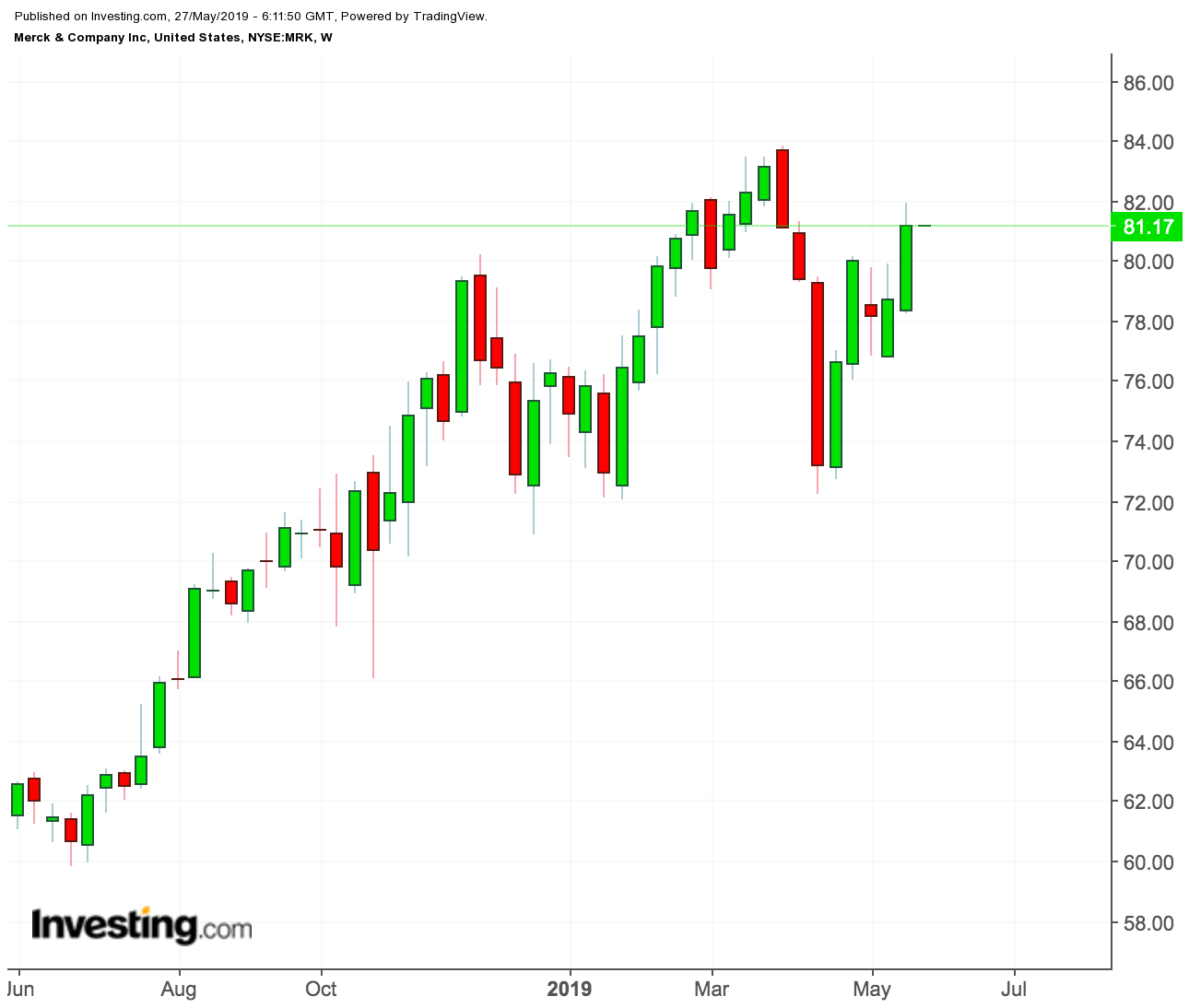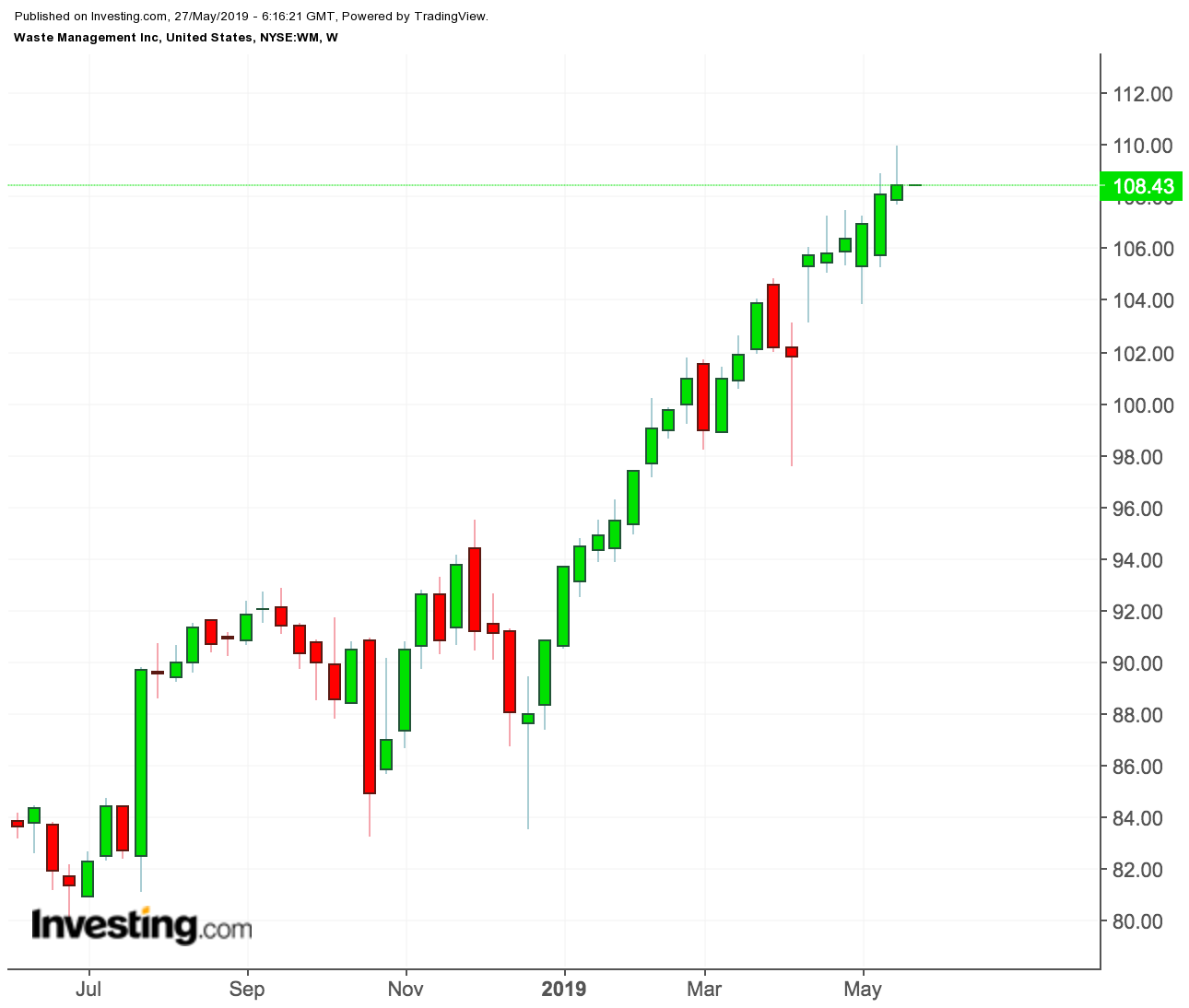One thing that future or current retirees hate is too much volatility in their portfolios. The key is to achieve a collection of stocks that provide smooth sailing, slow and gradual capital appreciation, and a regular income stream to help cover expenses in the golden years.
So, investors just starting out on their saving journey and keen to build up a nest-egg should certainly consider some high-quality dividend stocks to add to their portfolios. Companies with good managements, strong balance-sheets, and dominant market positions are the best bets in this trade.
The following two dividend stocks have proved to be solid income-generators for retirees; they belong to the group of equities that are able to perform well in times of economic turmoil as well as in times of stability.
1. Merck
The reason we love Merck & Company Inc (NYSE:MRK) for a retirement portfolio is the healthcare giant’s defensive nature and its growing dividend. Just like retailers, utilities, and telecom companies, health providers offer services that we can’t afford to put off in a recession and economic swings don’t typically curb the roll-out of new drugs and devices.
The shares have gained almost 37% in the past 12 months, and closed up 0.2% at $81.17 on Friday.

Merck, a global healthcare provider, has had many successes in introducing blockbuster drugs. Its cancer-treating Keytruda is the latest addition to its pipeline with sales growing rapidly. Recent trial results have made it a clear leader in lung cancer treatment and analysts expect it will bring close to $12 billion in sales by 2022.
The company also has many other older drugs that continue to provide a solid stream of cash, especially its vaccine segment that includes immunizations for measles, mumps and rubella. For a drug producer, spending on its R&D is a matter of life and death. In October, the drugmaker said it plans to invest $16 billion in new capital projects through 2022, a 33% jump over the previous year.
With strong earnings momentum, a large R&D budget and a growing dividend and buybacks, we believe Merck is a good long-term bet. Last year, Merck boosted its dividend by 15% to $2.2 a share annually. That translates into an annual dividend yield of 2.7%.
2. Waste Management
We create a lot of trash each day and someone has to take care of that trash, no matter if there is a recession or boom. The California-based Waste Management Inc (NYSE:WM) is well-positioned to convert our trash into cash for its long-term investors. The shares have risen 33% in the past 12 months, and closed Friday's session at $108.43.

The company manages the largest network of landfills, transfer stations, and recycling facilities in both the U.S. and Canada. Its massive moat and huge cash-generation mean a steady flow of income for retirees for years to come.
Last month, WM announced it will buy competitor Advanced Disposal Services Inc (NYSE:ADSW) for around $2.9 billion, which the Wall Street Journal describes as one of the biggest solid-waste company acquisitions in more than a decade. The deal brings together the largest and the fourth largest companies in the sector, further consolidating Waste Management’s competitive advantage in the industry.
WM stock has proved to be a solid investment for long-term investors. Over the past decade, the company has more than doubled its annual distribution to shareholders. Today, WM stock pays a $2.05 dividend per share annually, translating into a 1.87% annual dividend yield.
If the dividend had been re-invested, investors made about 150% in total returns in the past five years, massively outperforming the S&P 500’s approximately 50% gains. It’s hard to predict if WM will continue to provide a similar payback, but its leading position in the industry suggests that it’s a relatively safe bet for long-term investors.
Bottom Line
Dividend stocks, such as Merck and WM, are safe bets if you want to build a portfolio that could provide you with a steady passive income in your retirement years. These stocks have the ability to outperform the broader market even when it's in a deep correction, or during periods of economic recession. Diversifying your portfolio with defensive stocks that pay regularly growing dividends is always a good strategy for retirees.
